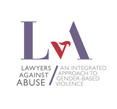Masibambisane Community-based survey findings on the incidences and drivers of Gender Based Violence & Femicide (GBVF) in 18 communities across 9 provinces
SUMMARY
November to December 2022
The Foundation for Human Rights (FHR), Lawyers Against Abuse (LvA) and our eighteen GBVF Masibambisane Programme partners, conducted a first annual GBVF household survey, focused on adult women’s experiences of gender-based violence in South Africa, in November to December 2022.


Gender-based violence includes physical, sexual, emotional, verbal, psychological and financial violence. It is the use of some kind of force or, or the threat of force, against someone on the basis of that person’s real or assumed gender identity.
FINDINGS
Half of the women surveyed had experienced at least some form of Gender Based Violence (GBV), whether physical, sexual or emotional/verbal, in the past twelve months. Of the women surveyed:
1
in
10
1 in 3 5 in 10
experienced physical GBV
Almost 9/10 perpetrators were known to the women who experienced GBV, only one in ten women surveyed reported experiencing physical harm from a stranger.
experienced sexual GBV experienced emotional abuse
Only one-third of women reported sexual or physical GBV to police.
The more educated a woman was, the more likely they were to report physical and sexual GBV to the police.
Younger women and those with higher education reported experiencing more physical and sexual GBV than older and less educated women in the survey.
GBV
Women in urban areas were the least likely to have experienced any GBV (physical, sexual, verbal/ psychological).
From the women who experienced GBV from the survey:
Women’s perception of their relative safety did not align with the actual figures of any form of physical or sexual GBV that women had reported experiencing.
33% were from urban areas
50% were from informal settlements/rural areas
75% were from semi-urban areas
Although all income levels experienced GBV, higher income resulted in less GBV of all types. Of the women surveyed:
33% of the highest earners experienced sexual and or physical GBV compared to 80% of women who earned the least
Although the police opened a case two-thirds of the time, only one in ten cases of sexual GBV resulted in a conviction
Socio-economic rights are guaranteed by the Constitution to all people living in South Africa, regardless of their nationality. The government is responsible for providing access to socio-economic rights, including access to water, sanitation, health care, education, social support (grants) and food. Socio-economic rights are a basic requirement for the fulfilment of all rights, including the right to equality and dignity.
FINDINGS
The areas where the women who were surveyed lived
INCOME FOOD SECURITY
The number of women who did not earn enough to meet their basic needs
SETTLEMENTS
out of 10
out of 10
The number of women who were food secure
* Income was low in all areas.
* Almost everyone had access to electricity, and electricity was the primary source of energy for cooking and lighting.
About the Survey
The survey took place from the 1st of November 2022 until the 15th of December 2022 in 18 different partner sites in all nine provinces. 2048 women were surveyed and asked GBV related questions, as well as a variety of socio-economic questions. The survey was led by the FHR GBVF Masibambisane Programme which is a joint project between the FHR and Lawyers Against Abuse (LvA), with the 18 partnerships funded by the EU (European Union).
About the Masibambisane Programme
The Foundation for Human Rights works with civil society organisations to address GBVF in various sites through a programme called ‘Masibambisane’. This programme recognises that GBVF requires community members to work together in order to address this scourge. Masibambisane means unite, holding hands, let’s work together in isiZulu. The programme facilitates participation and strengthening of community stakeholders to take greater agency in dealing with GBVF through creating GBVF-Free Zones , and collaborating as civil society, government, statutory bodies and the private sector..
About the FHR
FHR partners with civil society organisations and public institutions that promote and facilitate increased awareness, respect, protection and fulfilment of the rights enshrined in South Africa’s Constitution. Within this, the FHR prioritizes the rights of the most marginalized and vulnerable. FHR does this through a twopronged approach as a funding intermediary (grant-maker) and through direct implementation of programmes. FHR prioritizes human rights awareness raising, advocacy and civil society mobilisation, capacity strengthening, research and policy development, and regional and international cooperation.

+27 (0) 11-593 4000 www. fhr.org.za info@fhr.org.za
FHRRights
FHRights foundation_for_human_rights
7th Floor Metalbox Building, 25 Owl Street cnr Stanley Ave, Auckland Park, Johannesburg
